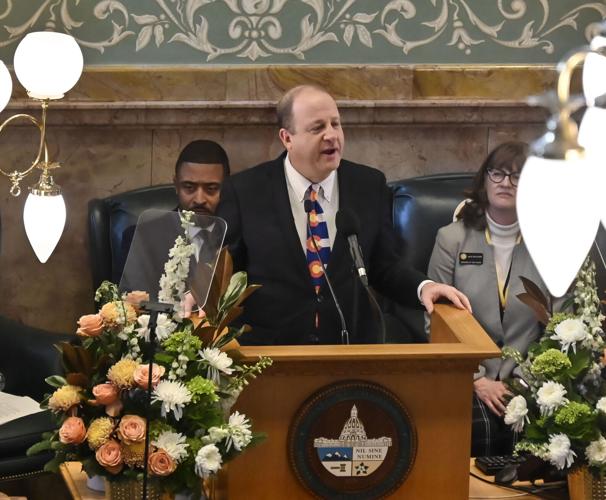First-class flights, seven-figure salaries: How NGO bosses are living good on the taxpayer dime
A constellation of nonprofit organizations collectively receiving billions of dollars from government agencies such as U.S. Agency for International Development shower their executives with lucrative compensation, luxury travel, generous contracts for family members, and top-tier office spaces, a Washington Examiner review of public records found.
The government has tasked prominent nongovernmental organizations such as ACDI/VOCA, Adventist Development and Relief Agency International, and the American Institutes for Research in the Behavioral Sciences with disbursing billions of dollars in taxpayer funds, primarily through foreign aid programs related to food security and public health. These taxpayer-funded private nonprofit organizations often opt to pay their executives high six-figure and occasionally even seven-figure salaries while also providing them with swanky benefits, tax records show.
“Nonprofits, like any organization, need to pay competitive compensation in order to attract competitive talent,” Capital Research Center senior analyst Robert Stilson told the Washington Examiner. “It’s a topic about which we should be balanced in our scrutiny. But to me, there is a somewhat different dynamic at play when we’re talking about nonprofits that are largely funded by the federal government. I certainly think it would be interesting to ask the average American taxpayer what he or she thought about seven-figure salaries at taxpayer-funded nonprofits.”
A prime example of a publicly funded private foundation that could raise eyebrows among U.S. taxpayers is the African Agricultural Technology Foundation. The nonprofit organization, which exists to provide technical assistance to African farmers, pays its four directors between $190,097 and $272,302 per year. While this is far from the seven-figure salaries some NGO heads bring in, AATF is based in Kenya where the average income is just over $7,000 annually, meaning that its leaders earn close to 30 times more than the typical Kenyan.
Large salaries are just the tip of the iceberg at AATF, with financial disclosures showing that the NGO has doled out tens of thousands of dollars in car loans and cash advances to key employees as well as covering first-class flights, housing, and “health or social club” fees for its leaders.
Federal grant records show that USAID has transferred tens of millions of dollars to AATF over the years, primarily for agricultural development programs.
Elon Musk, who President Donald Trump tasked with identifying and cutting government waste and fraud, slammed USAID officials Tuesday for allegedly using their positions as custodians of federal aid funds to profit personally.
“There are quite a few people in the bureaucracy who have ostensibly a salary of a few hundred thousand dollars but somehow managed to accrue tens of millions of dollars in net worth while they are in that position, which is, you know what happened to USAID,” Musk said. “Maybe they’re very good at investing … I think the reality is that they’re getting wealthy at the taxpayer expense.”
While Musk did not provide evidence for his claim that multiple government officials have seen exponential wealth growth, public records show that the leaders of some USAID-funded nonprofit organizations are padding their bank accounts thanks to the public’s support.
The American Institutes for Research in the Behavioral Sciences reported $355.3 million in revenue during 2023, according to its tax disclosures. Roughly $267 million of that came from government grants, which federal records indicate were disbursed primarily by USAID and the Department of Education. While relying on the government for the bulk of its funding, the institute makes sure to compensate its executives well.
The organization’s CEO, for instance, brings in over $2 million per year, while its executive vice presidents each make close to a million dollars. The institute employs 13 other executives raking in at least $300,000 each, as well as board members who take in high five-figure and moderate six-figure salaries for just a couple hours of work per week. A firm partially owned by a family member of the organization’s senior vice president for human services also received a six-figure research contract from the nonprofit organization.
The American Institutes for Research in the Behavioral Sciences is based in a “Class A” office building, which is the “most prestigious buildings competing for premier office users with rents above average for the area,” according to VTS, the real estate firm renting out the space.
Other taxpayer-funded nonprofit organizations that pay their executives seven-figure compensation packages include the Research Triangle Institute and CNFA. Even more groups, such as Gavi Alliance, Family Health International, Adventist Development and Relief Agency International, Pathfinder International, Global Communities, Mercy Corps, World Learning, Helen Keller International, ACDI/VOCA, Save The Children Federation, and the JSI Research & Training Institute, provided their leadership with mid-to-high six-figure salaries while raking in federal funding.
A Research Triangle Institute spokesperson told the Washington Examiner that executive compensation is determined by factoring in individual merit and market demand.
“RTI is a large, independent non-profit research institute incorporated in North Carolina,” the spokesperson said. “Consistent with applicable state and federal law, including the Internal Revenue Code, RTI’s Board of Governors oversees and approves executive compensation following a robust process, which includes engaging a nationally recognized independent consultant to conduct market benchmarking analyses from similar organizations to ensure RTI’s executive compensation is fair and reasonable and in line with industry peers. In addition to market benchmarks, individual executive performance is factored into executive compensation determinations.”
On top of their generous salaries, Mercy Corps and Adventist Development and Relief Agency International paid for first-class travel for their high-level employees. ACDI/VOCA and Helen Keller International are both housed in luxury office buildings at prime locations, with the former being just a five-minute walk from the Capitol and the latter being adjacent to the United Nations building. ACDI/VOCA also, in 2023, awarded a $265,000 contract to a company in which one of its board members owns a substantial stake.
A Mercy Corps spokesperson declined to comment on executive compensation at their organization but referred the Washington Examiner to a webpage showing that 86% of the group’s resources go toward program services.
Proponents of government contractors may argue that offering higher salaries, as well as other benefits, is crucial to attracting the talent necessary to carry out complex foreign aid operations. Max Primorac, who served as the acting chief operating officer of USAID under the first Trump administration, doesn’t buy that claim.
Contractors are not “well run” in terms of “efficiency and achieving outcomes because these programs, once they start, just keep on going,” Primorac, who now works as a senior research fellow at the Heritage Foundation, told the Washington Examiner. Indeed, Global Communities, which benefits from hundreds of millions of dollars in federal grants while paying its executives handsomely, was found in a 2023 independent audit to have had “significant deficiencies” in its “control over major federal programs” and in its financial reporting practices.
“But, if intended as a political tool for the Left, these are great,” Primorac said.
USAID has faced criticism from right-of-center voices over its funding of liberal social programs in foreign nations with a list of grants the White House described as “ridiculous,” including “sex changes and ‘LGBT activism’ in Guatemala” and a “DEI musical” in Ireland, serving as a flashpoint for the national debate over aid.
CLICK HERE TO READ MORE FROM THE WASHINGTON EXAMINER
“The whole concept of contracting is to try to bring private sector efficiencies into the public sector when, in fact, it went the other way around,” Primorac continued. “It actually made these so-called private entities really an extension of the government and, when progressives are in charge, they become the point of the spear in advancing their radical social agenda both at home and abroad.”
USAID and the nonprofit organizations mentioned, with the exception of Mercy Corps and the Research Triangle Institute, did not respond to requests for comment. JSI Research & Training Institute could not be reached. Helen Keller International declined to comment.









